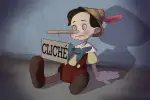Every movie studio and streaming service has proven that nothing can stay down for too long without a reboot, spinoff or sequel. And “Pretty Little Liars” is no exception. The original show was extremely popular during its seven-season run and garnered a massive fanbase, largely thanks to its ongoing mysteries (and attractive cast).
The show, which started as an adaptation of Sara Shepard’s novel series of the same name, followed four girls and their efforts to solve a number of mysteries in the fictional Pennsylvania town of Rosewood. Chief among these mysteries was the identity of “A,” a villainous character who tormented the four main girls in different ways, namely through secrets tying back to their missing friend Alison, and whose identity changed hands quite a few times.
During its seven-season run, the show made way for two spinoffs, “Ravenswood” and “Pretty Little Liars: The Perfectionists,” the latter of which having been released just two years after the original show ended. Both spinoffs were canceled after only one season.
Despite this general inability to bring about successful spinoffs or sequels, Roberto Aguirre-Sacasa of “Riverdale” has taken it upon himself to produce “Pretty Little Liars: Original Sin.” Little is known about the project as of right now — it only recently began announcing its cast. However, a vague synopsis has been released, and many have responded negatively to what little information it provides.
Why Previous Spinoffs Failed
The desire to capitalize on “Pretty Little Liars” is understandable. The original attracted a massive audience. Although its viewership fell to the wayside as an inevitable seasonal rot sunk in, it left a substantial impact on pop culture throughout the 2010s. In a way, it was the teen girl drama of its time.
People still hold it near and dear to their hearts. This is largely thanks to the show’s writers’ ability to constantly build suspense and raise the stakes for the four leads; a unique tone that played with both psychological horror tropes and campy teen drama; and a bond between the main characters (not to mention the charisma of the actresses portraying them) that served as a refreshing representation of female friendships. While perhaps not containing a “lightning in a bottle” type of excellence, previous spinoffs have proven that this formula is not so easily replicated as one might assume.
Despite its popularity, however, “Pretty Little Liars” is far from a beacon of good writing. It had ridiculous storylines that left even the most diehard fans confused and a disappointing season finale that was universally panned by critics and fans alike.
Perhaps this is why its spinoffs couldn’t find the same level of success. While “Pretty Little Liars” fans were committed to their own series, they weren’t all ready to jump ship to another one with the same glaring flaws and none of the beloved characters. Plus, after years of death fake-outs and weird relationship reveals and continuity errors throughout the original seven-season run, many fans were tempted to quit the show altogether. Not to mention the disastrous series finale.
So, although the same minds behind the original show headed both “Ravenswood” and “The Perfectionists” and members of the original cast also held important roles in both shows, neither saw success anywhere close to that of “Pretty Little Liars.”
Additionally, it always felt too soon to create a spinoff of “Pretty Little Liars.” The show ended in 2017 — far too recent to have much nostalgic potential and far too silly to be considered iconic television. “The Perfectionists” was also canceled in 2019 after its short-lived run, and though it was never as popular as its predecessor, its death was still raw in some fans’ hearts. The announcement of yet another spinoff so soon after the cancellation of “The Perfectionists” hit them hard, especially because this new project will not involve any members of the original show’s cast or screenwriter I. Marlene King, and is not based on any content from Sara Shepard’s books.
Also, Nobody Trusts Roberto Aguirre-Sacasa
While the absence of King, and the original writers in general, was bad enough, it turns out that Roberto Aguirre-Sacasa is the showrunner for “Original Sin.” This added insult to injury for many fans of the original, with some speculating that King herself was against the project.
Plus, Aguirre-Sacasa unfortunately has a lackluster track record of television shows, which includes the three shows that make up the Archiverse: “Riverdale,” “The Chilling Adventures of Sabrina,” and “Katy Keene.” The first is practically a meme in and of itself, thanks to its horrible dialogue, nonsensical plot and broken timeline; one need only to look up “Riverdale cringe” on YouTube to find endless videos mocking the series in its laughably terrible glory.
Seeing as many of the criticisms aimed at the original “Pretty Little Liars” bear similarities to criticisms aimed at Aguirre-Sacasa’s works, from the sexualization of teenagers to the random and unrealistic plot points, people also doubt the ability of this spinoff to improve upon its source material, especially since most would agree that “Riverdale” is far worse than “Pretty Little Liars” ever was.
People have also pointed to Aguirre-Sacasa’s tendency to sideline marginalized characters and reduce them to either non-entities or stereotypes as another reason to be wary. After all, while far from perfect, “Pretty Litle Liars” was somewhat progressive in its heyday, being among the first shows to include a non-white lesbian as a main character.
The synopsis also bore some similarities to “Riverdale,” which only strengthened many people’s worry that this spinoff would only “Riverdale”-ify an unrelated franchise. Several elements — particularly the concept of the dark deeds of parents returning to haunt their teen children in a small town — seem a lot more “Riverdale” than “Pretty Little Liars,” which placed far less emphasis on the sins of the father.
Why Call This “Pretty Little Liars”?
In light of the fact that this project lacks the involvement of anyone from the source material and bears more similarities to Aguirre-Sacasa’s other series than “Pretty Little Liars,” some have stated that the use of the series’s name is simply a marketing tactic. And it is true that many reboots and spinoffs could have been just as good had they been released as independent works. The spinoff takes place in a different town with completely different people, after all.
While “Original Sin” might end up being the breath of fresh air that proves once and for all that cheesy teen dramas still have a place among the greats, there is simply no justification to attach it to the “Pretty Little Liars” name.
It really would do creators good to let franchises take a breather. While advertising new shows as part of an established franchise can certainly help get some media attention and additional viewers, it also draws in additional criticism as people draw comparisons to the original work. In the case of “Pretty Little Liars,” which left off on a sour note for too many people, attaching “Original Sin” to such a property feels like a choice that only welcomes further negative attention.
Though that tactic has worked out okay for “Riverdale,” which has been renewed for a sixth season, there is too much doubt surrounding the project to definitely say that Aguirre-Sacasa’s efforts will be fruitful. While I don’t want “Original Sin” to flop — I don’t think anyone is truly happy about the creation of more terrible shows — should “Original Sin” prove to be as bad as some people’s worst fears, well, Aguirre-Sacasa and company will have a lot to answer for.
There is nothing inherently wrong with spinoffs or reboots. After all, it’s not like good spinoffs are completely unheard of, even if they seem like the exception more than the rule. However, with a show like “Pretty Little Liars,” it may be best to let the dead stay dead.

















